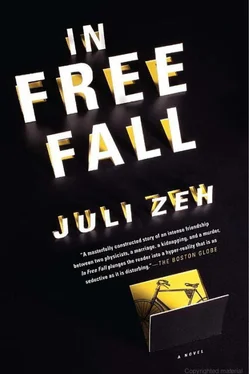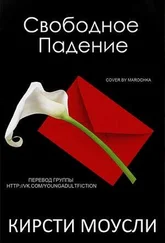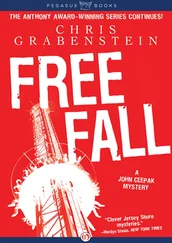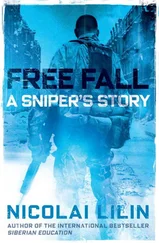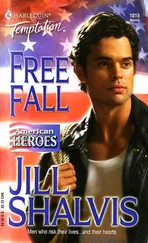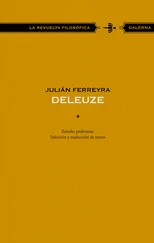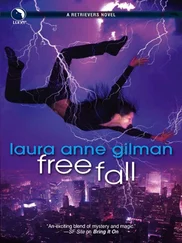“There are few things that are sacred to me.”
“I felt a fondness for your friend right away,” Schilf says. “And I think he felt the same about me.”
“That is the fondness of the bird food for the bird. Come with me.”
Oskar puts the photograph back in the drawer and bundles the detective out of the room. The steaming cups of tea on the side table prove that Schilf has spent at least a quarter of an hour gazing at the photograph. Oskar pours a dash of rum from a white bottle into the cups.
“None for me,” Schilf says.
“I make the rules here.”
The fumes of alcohol prick the detective’s nostrils like long needles even before he takes his first sip. Behind his forehead, something contracts and then expands to twice its original size. Schilf drinks. He feels the alien heartbeat in his head more clearly than ever before. The crow hanging from the ceiling lamp flaps its wings and shadows glide up the walls. Oskar’s face is a solid plane in a web of intertwined curves. Say something, the detective thinks.
“Has Sebastian confessed?” Oskar asks.
“If not, you’ve just betrayed him.”
“Surely not, Detective. I know that you’re not as stupid as your profession would suggest.”
“Did Sebastian tell you that?”
“If you’ve come here hoping that I’ll incriminate him…” Oskar leans forward. “I’d rather rip out my tongue with my bare hands.”
“Now you’re the one playing dumb,” the detective says.
The next sip of tea is better than any medicine. The pressure in his head eases off and the alien heartbeat becomes a monotonous buzz that affects his hearing but not his ability to think clearly.
“I’ve handed the murder case to someone else, by the way.”
Oskar does not permit himself the slightest flicker of surprise. He looks at the detective’s mouth expectantly and lights a cigarette, which Schilf counts as a success.
“I’ve seen you on television. I was impressed by the program. May I ask you something?”
“Go ahead.”
“Do you believe in God?”
It is impossible not to like Oskar when he laughs.
“Sebastian was right,” he says. “You are an unusual detective.”
“So he did talk about me.” Schilf blushes—perhaps it is the alcohol. “Will you answer my question?”
“I’m a religious atheist.”
“Why religious?”
“Because I believe.” Oskar blows smoke off to one side politely. “I believe that the existence of the world cannot be conclusively explained to us. It takes a truly metaphysical strength to accept this.”
“A strength that Sebastian does not possess?”
“You’re touching on a sensitive point. The grown-up Sebastian you have met is actually still the boy that you saw in that photo. Like all boys, he longs for a world in which one can be both a pirate and a bookworm.”
“What do you mean?”
Oskar watches as Schilf pours himself more tea and pushes the bottle of rum across the table.
“Sebastian loves his life,” Oskar says, “but he still wishes he had not made a certain decision many years ago. Back then he leapt over a wall to save himself.”
“What’s behind the wall?”
“ C’est moi ,” Oskar says. “And physics.”
“A tragedy of classical proportions.” Schilf blows at the steam rising from his cup.
“Irony doesn’t suit you.”
“I meant that seriously.”
“Then you’ve understood what I am talking about.”
They hold each other’s gaze until Schilf looks away and takes his cigarillos out of his pocket. Oskar stretches across the table to give him a light, and stays in that position.
“Intelligent people,” he says, “often pour their despair into scientific formulae. In order to be happy, a man like Sebastian would need a second, a third, perhaps even a fourth world.”
“So that everything that is possible happens,” says Schilf.
Oskar’s features soften into a laugh again, and he runs his fingers through his hair.
“You really are good,” he says, letting himself sink back. “So you’ll understand why the idea of several contradictory things happening at the same time is very attractive to some people. And why it’s like a nightmare, too.”
He looks intently at the glowing tip of his cigarette, takes a final drag, and stubs it out in the ashtray. The stuffed crow has swung nearer. To Schilf, it looks like it is hanging directly over Oskar’s head.
“Thinking like that negates the validity of every experience,” Oskar continues. “It negates us.”
“Perhaps Sebastian has realized that now.” Schilf lets ash fall onto the carpet. “After the kidnapping, which he’s constantly talking about.”
The remains of a laugh play in the corners of Oskar’s mouth.
“Yes,” he says, “perhaps.”
“Sebastian and his family,” the detective says, “are an equation with one unknown. Someone has adjusted one of reality’s screws. It’s the right way to create a false picture. When a person deludes himself into thinking he is in charge, reality puts her fat arms on her hips and leers at him. On the contrary, a good lie is the truth plus one. Don’t you think?”
“To be honest, you’re talking rather confusedly.” Oskar’s eyes bore into Schilf’s face.
This time it is the detective who laughs.
“You may be right,” he says. “Do you know that your friend doesn’t really hold to the Many-Worlds Interpretation at all, but is pursuing advanced theories on the nature of time?”
“Did he tell you that?”
Schilf nods.
“That doesn’t matter,” Oskar says, suddenly brusque. “He’s looking for new ways to escape himself.”
They are silent until the final echoes of the last sentence die away. Schilf’s body fills the corner of the sofa like a soft mass that would feel comfortable in any given position, while Oskar sits with his legs stretched out before him, looking ahead with hooded eyes.
Finally the detective speaks. “Do you love Sebastian?” he asks.
“A good question,” Oskar says, still sitting in the same position.
There is a pause, and Schilf stands up. With his cigarillo in the corner of his mouth, he walks over to the dormer window, where for a moment the view takes his breath away. The steps to Oskar’s apartment have taken him right up to the sky. From this bird’s-eye view, the city is a circuit board of twinkling lights. Rows of diodes connect up into a network of communicating lines, like letters of the alphabet.
Blackmail, more or less, the detective thinks. Perhaps Sebastian has jumped over the wall a second time by murdering Dabbelink. Perhaps he had secretly hoped to find Oskar still waiting behind the wall, but was shocked to the core to find that he was right. And now he is escaping into nowhere.
Since the fracture that separated the detective from himself, he has wondered often whether people are not somehow responsible for every conceivable twist of their own fate. Whether it isn’t that people only ever blackmail themselves.
He recognizes the glowing patches of the Place de Cornavin, Place de Montbrillant, and Place Reculet, the dark ribbon of the Rhône, the colorful twinkling lights of the Quai du Mont-Blanc, and the devouring darkness of Lake Geneva beyond it. As if on cue, the pain starts nagging between his eyes again. It grows hot and bright and draws the city closer to him, bathing it in a glittering light.
Three people, tiny as toy figures, are walking across a pier toward the Jet d’Eau. Two of them are close together, probably arm in arm. The third, smaller person is running ahead like an excited dog. All three have blond hair. The detective sees them in unusually sharp detail in spite of the distance; he can just see their outstretched index fingers, and the happy faces turned up toward the sky to take in the whole height of the white gleam at the end of the pier. The tower of water splits the sun into all the colors of the rainbow.
Читать дальше
